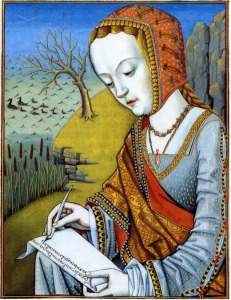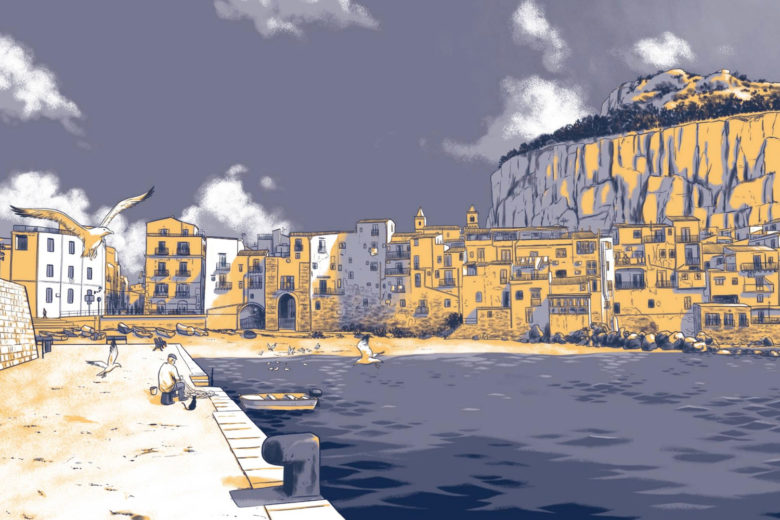The first poet to write in vernacular? She was called Nina and she came from Sicily
Perhaps from Palermo, more likely from Messina, this woman living in the thirteenth century has a legendary aura and seems to give Sicily another record, after the one held by the School of Poetry of Frederick II. She had the ability to put women in the foreground giving them an active role towards the beloved, and we do not remember her only for the language she used, but also for the new meanings of her poetic writing
The language developed by Giacomo da Lentini and Pier delle Vigne in the Sicilian School of Poetry gathering around Frederick II of Swabia in the first half of the thirteenth century had a decisive influence on Dante Alighieri and then on the development of Italian language itself, and we know it for sure. What is probably less known is that Sicily holds another record linked to vernacular poetry. In fact, a woman with still mysterious and sometimes legendary contours rose in late medieval culture as an admirable example of elegance in the style and value of her poetry. There are many names that identify her: from Monna Nina to Nina from Messina and to Nina Siciliana – the most frequent identification in the discourses of scholars. The only certain thing, in this case, seems to be that she was called Nina: she was the very first woman to compose in vernacular language and she came from Sicily.
«Qual sete voi, sì cara proferanza/ Che fate a me senza voi mostrare? Molto m’agenzerìa vostra parvenza/ Perché meo core podesse dichiarare» (Who are you, that offer me such tender words without showing yourself? Your appearance would truly cheer me, as, by seeing you, my heart could speak openly). Thus reads the first quatrain of one of the only two sonnets by Nina that are left to us and that are included in a Florentine collection published by Giunti in 1527. But who was this woman, who contemporaneously and do not remember as extraordinary beauty and acute talent, which do your verses crave intensely the meeting with your beloved? We know almost nothing of her origins: some say she came from Palermo, although most of the experts rather tend to Messina. In fact the latter (in case it was really her birthplace) could give us some useful information on how the young woman came into contact with the art of poetry, as Guido and Oddo delle Colonne, two important writers of Sicilian School, were just from there. Therefore, it is possible that Nina, who must have had a vast culture to grasp the preciousness of contemporary poets, developed a passion for that refined poetry devoted to love and decided to follow the same path. If hers would have been a mere operation of imitation, though, we probably would not be still here to talk about her. So, what did distinguish her and why did another great medieval poet, the Tuscan Dante da Maiano to whom she turned in the will to declare herself, say to be in love with her after simply reading her verses and without even meeting her?

An alleged depiction of Nina Siciliana
In an attempt to re-elaborate some canonized models, Nina opened up to a revolution and to a poetic line that her Italian “colleagues” would fully embrace only between the fifteenth and sixteenth centuries. In becoming a subject, an eager lover, a propeller center of his lyrics, the poet questioned the pattern of courtly love, which wanted women to be only the object of men’s services and inspirations: in fact, although subordinate to the choice of their beloved, men actually always placed women in the background. With Nina everything changed: the woman found herself to be an active protagonist, superior to the hesitation of her man in the will to take the reins of the situation. In other words, after having known men’s psychological troubles, the most intimate feminine feelings found their literary dignity in the lines by Nina. Even if her existence has been repeatedly questioned, and some hypotheses of contemporary poetesses that would contend the primacy were advanced, Sicilians keep this poet close to them, proud of the unique genius that she was able to express – just like every true Sicilian woman does.
Translated into English by Eva Luna Mascolino



